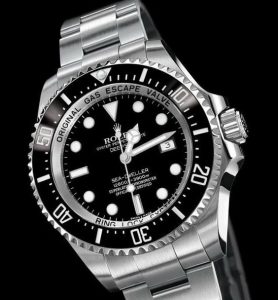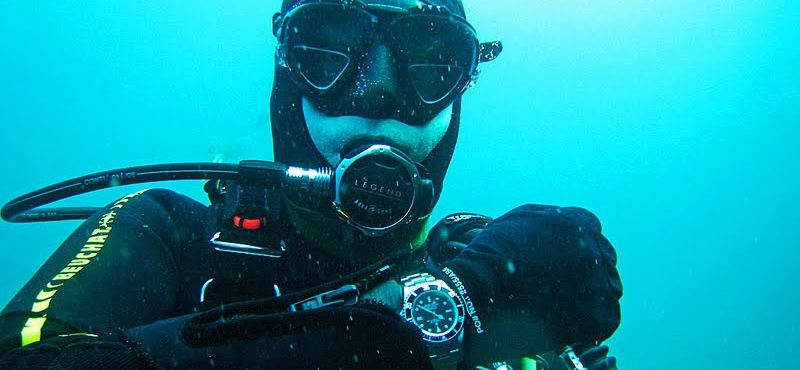“More people have walked on the moon than have been to the deepest place in the ocean.”
In 1926, Hans Wilsdorf, the founder of Rolex, filed a patent for an ‘oyster case’ in Britain. The components of the oyster case include a screw down crown, case back and bezel. When combined, it sealed the watch preventing water from penetrating into its insides.
The original design was patented by Paul Perregaux and Georges Peret a year before. Seeing the patent’s potential, Hans negotiated for its purchase and succeeded.
The riveted crown at 3 o clock features a screw down mechanism that could be tightened prior to going into the water
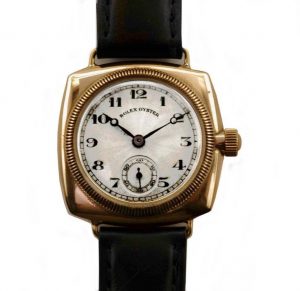
The Rolex Oyster and the patented oyster case design gained public recognition shortly after when Mercedes Gleitze swam across the English Channel wearing one around her neck. It was the first time a British woman swam across the channel. Also, the Rolex Oyster she swam with remained fully functional while losing none of its timekeeping precision after 10 hours of battering in freezing waters.
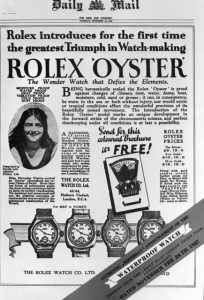
The Omega Marine
In the 1930s, Omega introduced the Omega Marine – the first wristwatch designed with diving in mind. In order to avoid any potential infringement of Rolex’s screwed down design, Omega came up with a simple but ingenious design – a case within a case.
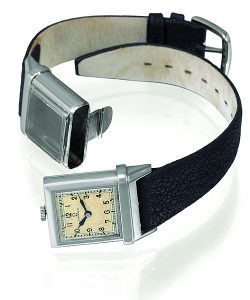
The design of the Omega Marine allowed its normal watch case – worn on all other occasions as an dress watch – to slip into a second waterproof case equipped with a gasket at the back to seal both cases together before embarking on a dive.
In 1936, a few pieces of the Omega Marine were sunk into Lake Geneva to a depth of 73 metres for 30 minutes; it emerged unharmed and victorious.
Omega created the first waterproof, and thus, the first dive watch, defined as one with the capability to remain submerged in a reasonable depth over a period of time.
The Rolex Panerai
Since the turn of the 19th century, Officine Panerai, an Italian company, has been supplying precision marine instruments to the Italian Navy.
In 1935, the Regia Marina, the elite diving unit of the Italian Navy approached Panerai and requested for a dive watch for its combat divers. The Omega Marine, while having proven itself as a reliable dive watch was not considered for as it was not designed with the military in mind. The Navy had a stringent list of requirements tailored to meet the operational needs of a combat divers.
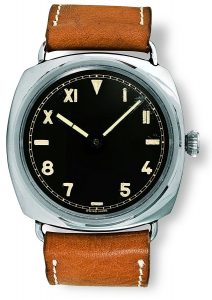
Panerai sought the help of Rolex and Rolex helped to make Panerai’s earliest watches. The shipment of watches for the Regia Marina featured the same Rolex Oyster case, but blown up to 47 mm to improve legibility. The dials were also devoid of any brand marking as these watches were military issue and needed to maintain a covert origin. Visibility in dark depths was of utmost priority for combat divers and so, Panerai applied the indexes and hands with Radium – a radioactive material causing them to glow brightly in total darkness. This association with Radium eventually led to one of Panerai’s model – the Radiomir.
Blancpain: The First Dive Watch
In 1953, Blancpain introduced the Fifty Fathoms to the world. Prior to its unveiling, they had been working with the French Navy to produce the ultimate dive watch.
In addition to the water resistance, depth resilience and luminescent markings, the Fifty Fathoms had the world’s first rotatable bezel.
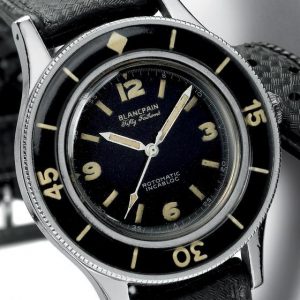
The rotatable bezel is critical for tracking a diver’s oxygen supply and to time his duration in depressurisation before ascending among other tasks. A simple but indispensable component – a diver bearing a tank with 30 minutes of oxygen supply simply turns the bezel such that the diamond marker (originally positioned at 12 o clock) aligns with the minute hand before plunging into the sea. The distance between the minute hand and the ’30’ marker on the bezel tells a diver how much longer he can stay submerged before oxygen ran out.
While the tracking of elapsed time is not new (chronographs were already in existence and used in sporting events), the importance of a dive watch bezel’s was a matter of life and death. Blancpain’s rotatable bezel would become a mainstay of diving watches to this day.
Who created the first Dive watch?
Rolex created the first waterproof case, forcing Omega to think of a way to come up with their own design, which led to the ‘case on case’ patent, hence, creating the first dive watch in the technical sense.
Panerai did not believe the Omega to be good enough for the Italian Navy, and so, decided to strike a partnership with Rolex, resulting in the first military dive watch.
Blancpain, set about improving the original incarnations and came out with the first modern dive watch.
No one company deserves more credit than the other. They were all great watchmakers who were working collectively to create that one watch that could go as deep as possible.
Rolex Dive Watches
Rolex took another step forward when the Rolex Submariner was presented in 1953 – the first watch impressing with a water-resistance of up to 100 metres. This number would later increase to 200 metres and finally to 300 metres. Additionally, the Submariner is equipped with a uni-directional rotatable bezel, making it ideal and safe for measuring diving time.
The Rolex Submariner collection rose to fame, when it was featured in a number of James Bond movies, on the wrist of Sean Connery in “Dr. No”, the very first film about the British Secret Service agent. Ian Fleming, the author of the James Bond book series, stated about the spy: “He could not just wear a watch. It had to be a Rolex.”
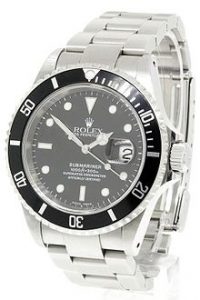
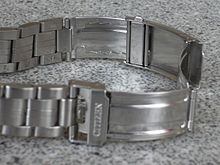
The Rolex Submariner is probably the best-known dive watch – and not only for being worn by James Bond. The iconic design combined with the extraordinary quality that made Rolex famous makes for a reliable wristwatch water-resistant to 300 metres.
But the “Sub” is not the only celebrated dive watch by Rolex: the Sea-Dweller and its more expensive sister model, the Rolex Deepsea, are every bit as reliable and precise as the Submariner.
